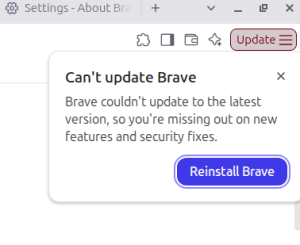Bitcoin Is “Dumb,” And That’s A Good Thing.
![]() Forbes columnist Neale Godfrey recently warned Millennials to “beware of the Bitcoin bite.” To be fair, there probably aren’t many Bitcoin enthusiasts who aren’t aware that Bitcoin is a risky investment by now. Recent events that include the conviction of “Dread Pirate Roberts,” and now the closure of a major Hong Kong exchange, don’t help matters.
Forbes columnist Neale Godfrey recently warned Millennials to “beware of the Bitcoin bite.” To be fair, there probably aren’t many Bitcoin enthusiasts who aren’t aware that Bitcoin is a risky investment by now. Recent events that include the conviction of “Dread Pirate Roberts,” and now the closure of a major Hong Kong exchange, don’t help matters.
What it boils down to is that Bitcoin is a currency that is based on technology that could have a lot of uses. Andreas Antonopoulos seems to expect much of Bitcoin as both a currency and a technology in the coming years. Besides making payments cheap, Blockchain technology is catching the eye of software developers who are already using it to create MMOs and secure private messaging systems. As far as cryptocurrencies are concerned, the next few years are likely to be very interesting as more people learn about the possibilities.
The reason for this? According to Antonopoulos, “It’s dumb. That is one of its strongest and most amazing features.” The basic technology doesn’t really know whether you’re using it to send a payment or a private message. Its job is to act as a ledger of “transactions” made over the network. The decentralized open-source nature of cryptocurrencies means that there’s no single entity driving innovation. If a developer has an idea, he doesn’t need permission to create it.
“We will crush them,” he said of competitors who favor a centralized system in which a small group of entities drive development. “Now what happens when you throw 500 companies and 10,000 developers at the problem? Give (it) two years and you will see some pretty amazing things in Bitcoin.”
The history of technology seems to support such a bold statement. IBM once attempted to create a proprietary port system called PS/2. It worked as a way to hook up keyboards and mice to a personal computer. This technology had a fair amount of success until a consortium that included Microsoft, Dell and HP created a new kind of port – the Universal Serial Bus.
While IBM tried to control innovation by creating a proprietary technology, the USB Consortium out-competed this model by inviting innovation from developers. It becomes a common standard that works across multiple entities, making it more amenable to widespread adoption. Now you rarely see PS/2 even for keyboards and mice simply because IBM got out-competed by a more open model that wasn’t controlled by a single corporation.
Cryptocurrencies might not be backed up by a consortium, but the same principle applies. It’s an open-source, decentralized technology that can become whatever software developers imagine it could be. The Blockchain itself might not survive as anything that’s recognizable as the original Bitcoin. As Neale Godfrey warns, clever operators could manipulate the price for their own gain – and yes, I can hear you in the back saying that the same is true for normal operations at the New York Stock Exchange in which billions of dollars’ worth of wealth can change hands daily.
As an investment tool, invest with care and don’t store your Bitcoin in third party exchanges that can apparently be hacked easily if their track record is any indication. If you’re a developer, you’re lucky because you should feel like you found your own playground that only has to do with MMORPGs if you’re good at creating MMORPGs.
For the rest of us, cryptocurrencies are a really cool, cheap way to buy and sell goods and services if we know where to look. I’ve sold things on Bitcointalk and I hear the NXT Freemarket is promising. Risky? Sure. But I don’t knock what works when Bitcoin was really just the start of the whole cryptocurrency scene.
Books You Should Read
[ebayfeedsforwordpress feed=”http://rest.ebay.com/epn/v1/find/item.rss?keyword=%28bitcoin%2Ccryptocurrency%29&sortOrder=BestMatch&programid=1&campaignid=5337337555&toolid=10039&minPrice=25&listingType1=All&lgeo=1&feedType=rss” items=”5″]










